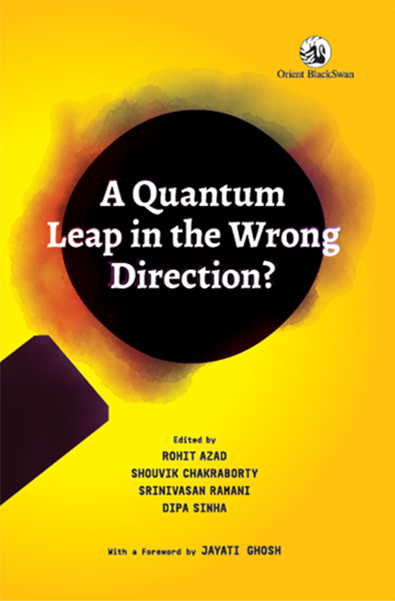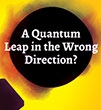Edited by Rohit Azad, Shouvik Chakraborty, Srinivasan Ramani, and Dipa Sinha
 The General Elections of 2014 saw a resounding victory for the BJP. Projecting Narendra Modi as a decisive leader, the BJP promised sweeping changes from the Congress-led UPA governments. Its election campaign was built on the planks of sabka vikas (development for all) and freedom from corruption, along with improved governance. So, did the NDA-II government deliver on its promise of development? Or, as Amartya Sen asserted, did India take a 'quantum leap in the wrong direction'?
The General Elections of 2014 saw a resounding victory for the BJP. Projecting Narendra Modi as a decisive leader, the BJP promised sweeping changes from the Congress-led UPA governments. Its election campaign was built on the planks of sabka vikas (development for all) and freedom from corruption, along with improved governance. So, did the NDA-II government deliver on its promise of development? Or, as Amartya Sen asserted, did India take a 'quantum leap in the wrong direction'?
A Quantum Leap in the Wrong Direction? compares the promises made during the run-up to the 2014 elections and the outcomes over the past five years. Each chapter of this book assesses different policies and initiatives of the government. They examine its macro-economic policies like demonetisation and GST; policies in the sectors of employment, agriculture, banking, and foreign affairs; its initiatives in the areas of health, education, environment, on gender, and for the marginalised sections. It assesses the government's success in the area of governance and in addressing corruption.
Moving away from partisan debates that resort to propaganda and provide no answers, the authors rely on an assessment of available official data and other reputable information, and thereby, let the facts speak for themselves.
This book asks whether, in the past five years, Indian economy and polity have progressed, stagnated, or regressed. This is a significant volume which provides a basis for a better-informed citizenry at a crucial moment in the country's history. It is a must-read for all Indians concerned about the future of the nation; students and scholars of economics will also find it informative.
ENDORSEMENTS:
What has development and democracy been for India in the last five years? The current Indian political discourse leaves the average citizen wedged between the intersection of deliberate misinformation and bewildering statistics. Reliable data has been suppressed with deliberate intent. A clear lucid, rational analysis is critical to understand our reality. Authors of this important collection, show how reliable data, statistics, and sharp analysis can be genuinely used to show why the Modi years are, indeed, a "Quantum leap in the Wrong Direction", for India's democracy and development.
--Aruna Roy, political and social activist, and founder of Mazdoor Kisan Shakti Sangathan.
The authors of this volume have done a great service to the Indian people who are about to participate in what is undoubtedly the most decisive election in our recent history. To choose wisely the people need to be correctly informed about the state of the country. And information is precisely what is being denied to them. Even statistics from official sources which show the government's performance in a poor light are being suppressed. This undermines our democracy. It is in this context that this group of young scholars has sought to present in this book a true picture of the performance of the Modi government. Their courage and commitment to democracy is commendable.
--Prof. Prabhat Patnaik, Professor Emeritus, Centre for Economic Studies and Planning, JNU.
Dissection of government economic policies, and of their impact on people, is a much needed democratic exercise - particularly when elections are near. This collection of articles is such an attempt. It is to the credit of the authors that they have managed to arrive at what I think is a credible assessment despite many difficulty in accessing reliable data because of delays and obfuscation that have become an unfortunate unprecedented feature of recent releases (or withholding) of official data. The authors' findings add considerable ballast to the argument that the impact of the present government's economic policies have largely been regressive. Although the other side in the debate is bound to contest this conclusion, the present collection definitely raises the bar to cross for those who would claim that promises of Acche Din have mostly been met.
--Prof. Abhijit Sen, Former member, Planning Commission of India



